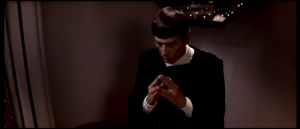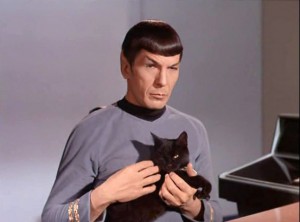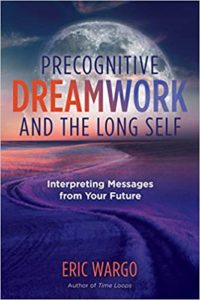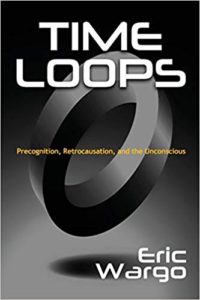Spock Was a Zen Man

Leonard Nimoy was, without a doubt, the most decisive influence on my spiritual life. He provided my first model of the mystical path, when I first started becoming curious about such things as a teenager.
When creating the character of Mister Spock, Nimoy was drawing directly from his childhood experiences of Orthodox Judaism, but I would only learn that much later. (Nimoy described the Jewish roots of Spock in a wonderful interview here.) At the time, when I was curled up in my beanbag chair every afternoon in our family rec room watching Star Trek reruns after school, I connected Spock’s Vulcan mental mastery with Eastern religion—specifically, with a story told by Eugen Herrigel in a little paperback I had bought at the bookstore (or perhaps been given), The Method of Zen.
One day on a trip to Tokyo in the 1920s, Herrigel was having lunch with a Japanese colleague when an earthquake struck. Panic quickly broke out, and most of the diners (including Herrigel) jumped up to hurry out of the restaurant. But the man Herrigel was having lunch with remained seated with his hands folded, his eyes nearly closed, completely undisturbed by the shaking going on around them. Fascinated by his companion’s trance-like calm, Herrigel sat down too and felt strangely safe, almost like the man’s trance put out some kind of force field protecting them. When the earthquake was over, the man continued the conversation exactly where it had broken off, saying nothing about what had just happened.
A few days later, Herrigel learned the source of his lunch partner’s amazing, infectious calm—he was a Zen Buddhist, whose emotional steadiness came from years of practicing meditation. Herrigel was sold. He went on to apprentice himself for four years with a Zen archery master and, from that experience, wrote the classic Zen and the Art of Archery.
Zen literature is full of stories of people achieving great feats of insight, physical skill, and mastery of their base emotions after years of focusing their minds. They often become rocks of support, quietly giving strength to others without being burdened by the ego that obscures and obstructs most people.
This seemed to me exactly like Spock—kind and compassionate, able to mentally connect with other beings (even the most exotic), and with a keen and brilliant mind that was unswayed by human passions, delusions, and fears. When alone, he was often shown sitting, eyes half shut, deep in meditation. To this day, I still see the Zen model as being something like a calm, compassionate alien taking a quiet, protective, healing role in the world of panicked humans.
Connecting Herrigel’s story to Spock made a huge impression on me, at a time when I was very impressionable. My hero, Spock, was clearly a Zen man, and I badly wanted to be one of those too.
I wonder how many other young people mistook Nimoy’s “Jewish” alien as a Zen master, sending them headlong on a rewarding, lifelong embrace of Zen or other Eastern religious paths?





It certainly appears that L.N. is making this transition “in a good light” — that is, it’s easy to find tributes to him that show that not only did he create an inspiring and memorable character and did other memorable and important acting work he also lived his life in ways that demonstrate that he consciously worked to improve upon himself and leave a good legacy. I’m pretty sure he had some low spots, but in the long run, he appears to have lived with good intention.
I’ve only got guesses as to what particular Jewish mystical traditions Nimoy drew on to sculpt Spock, but I wonder how much the associated practices resemble Zen practices? For many years I have entertained the notion that the mystical traditions of different ‘religions’ are in many ways closer to each other than they are, individually, to the exoteric traditions to which they are attached (including Christian mystical and contemplative traditions that have gotten the historical short shrift).
One of the things I have noticed about the evolution of “Vulcan” within the Star Trek universe is that, in ST:TOS, it often seems assumed that Vulcan logic and stoicism is something “genetic,” a “primary property” of being from Vulcan. This seems especially apparent to me in comments from McCoy. As things develop, though, it becomes very clear that “Vulcan” is a set of principles and practices that the Vulcan society adapted of necessity, because their “natures” were disastrously violent, and even (to me, Tuvok was the clearest example of this) neurotic.